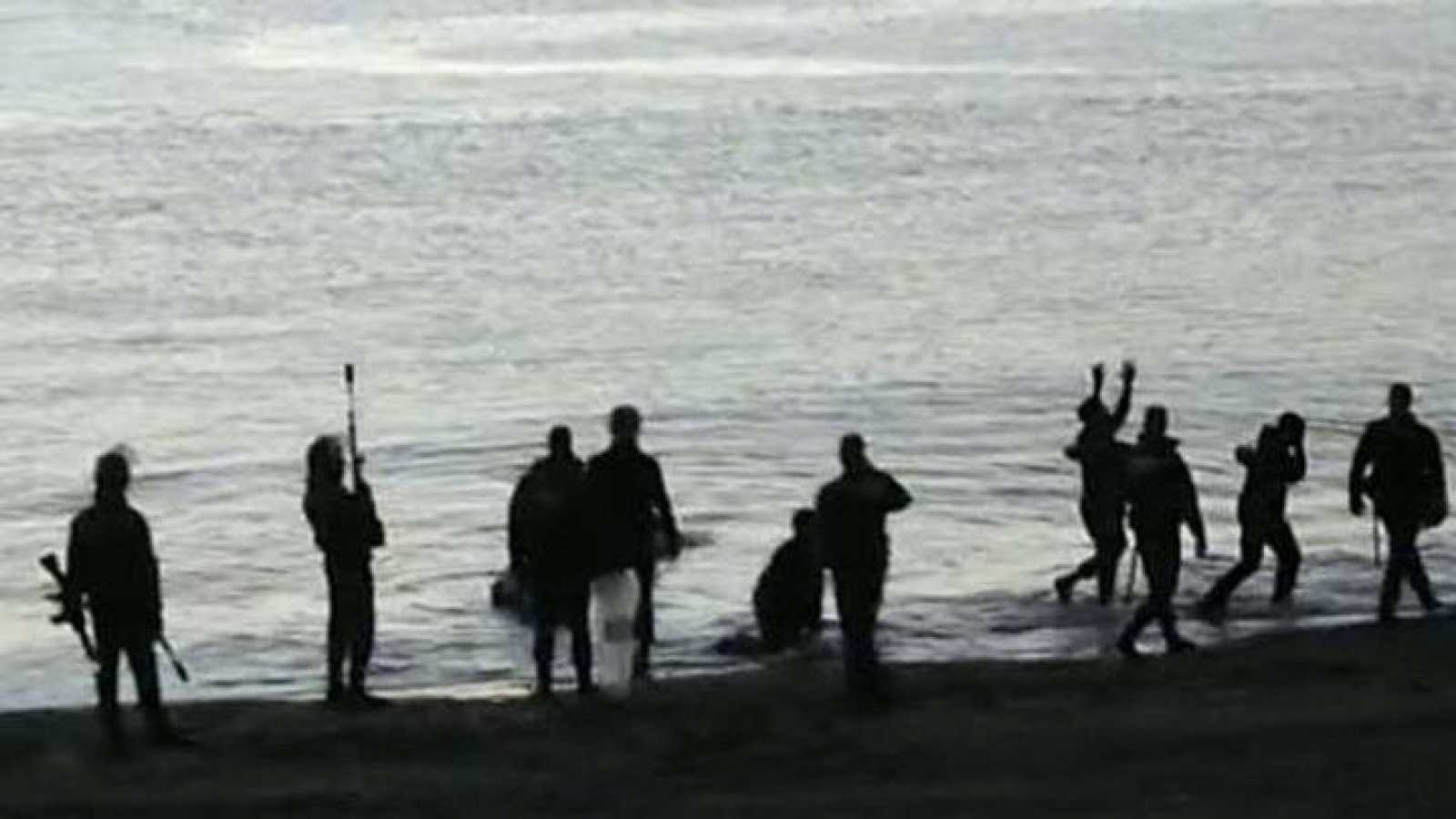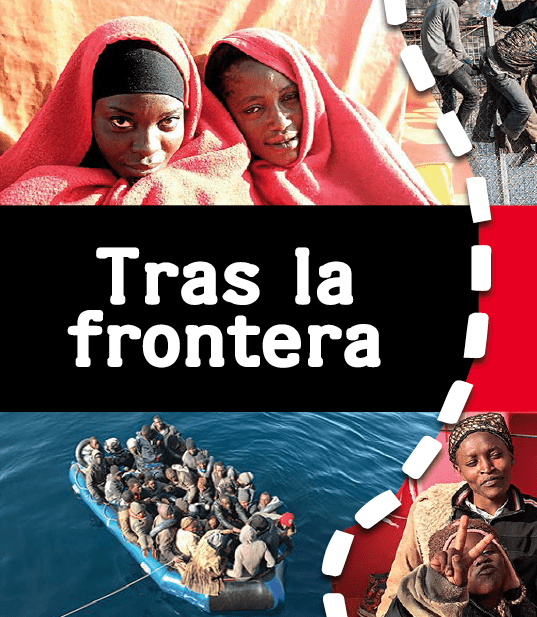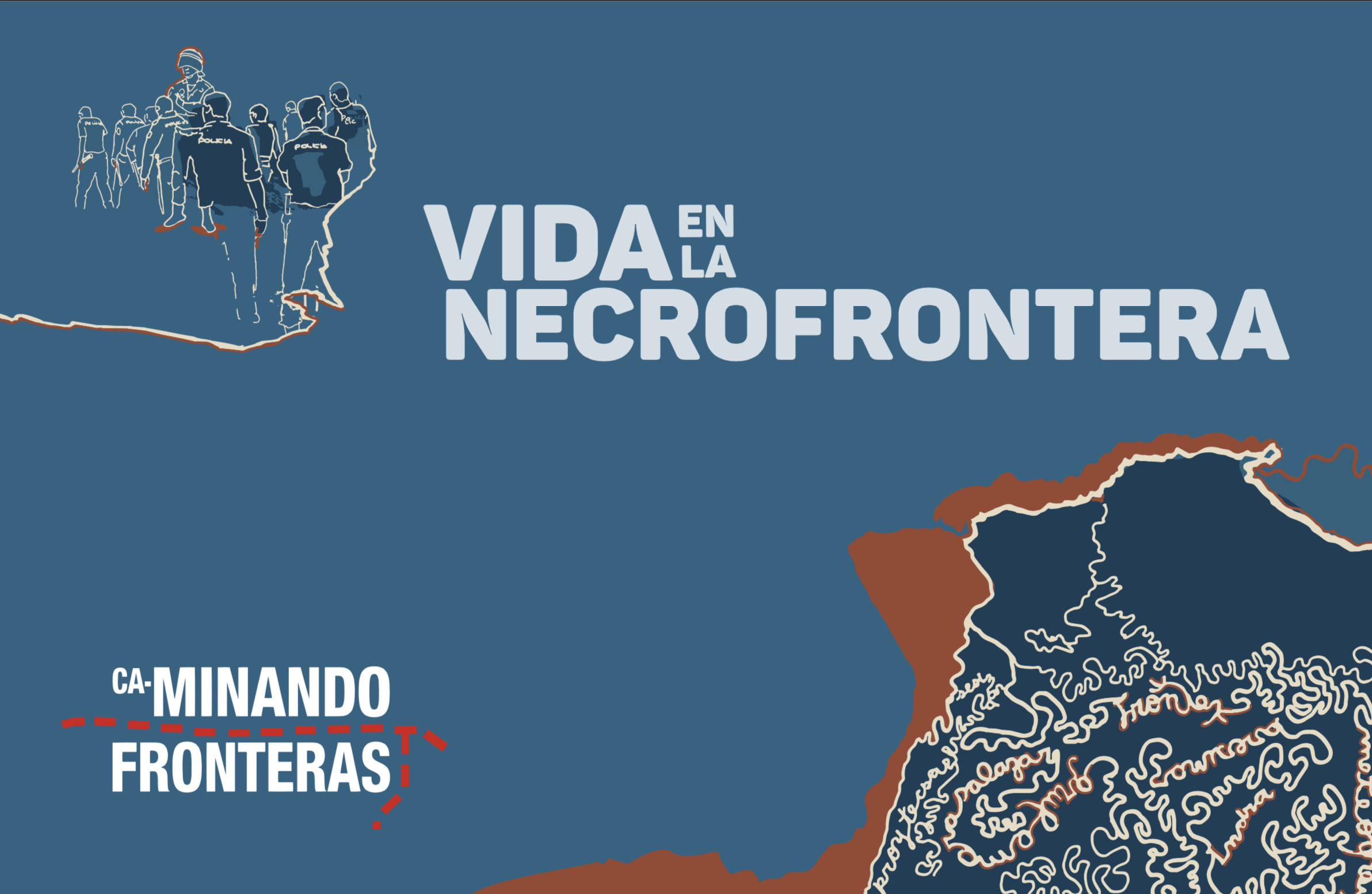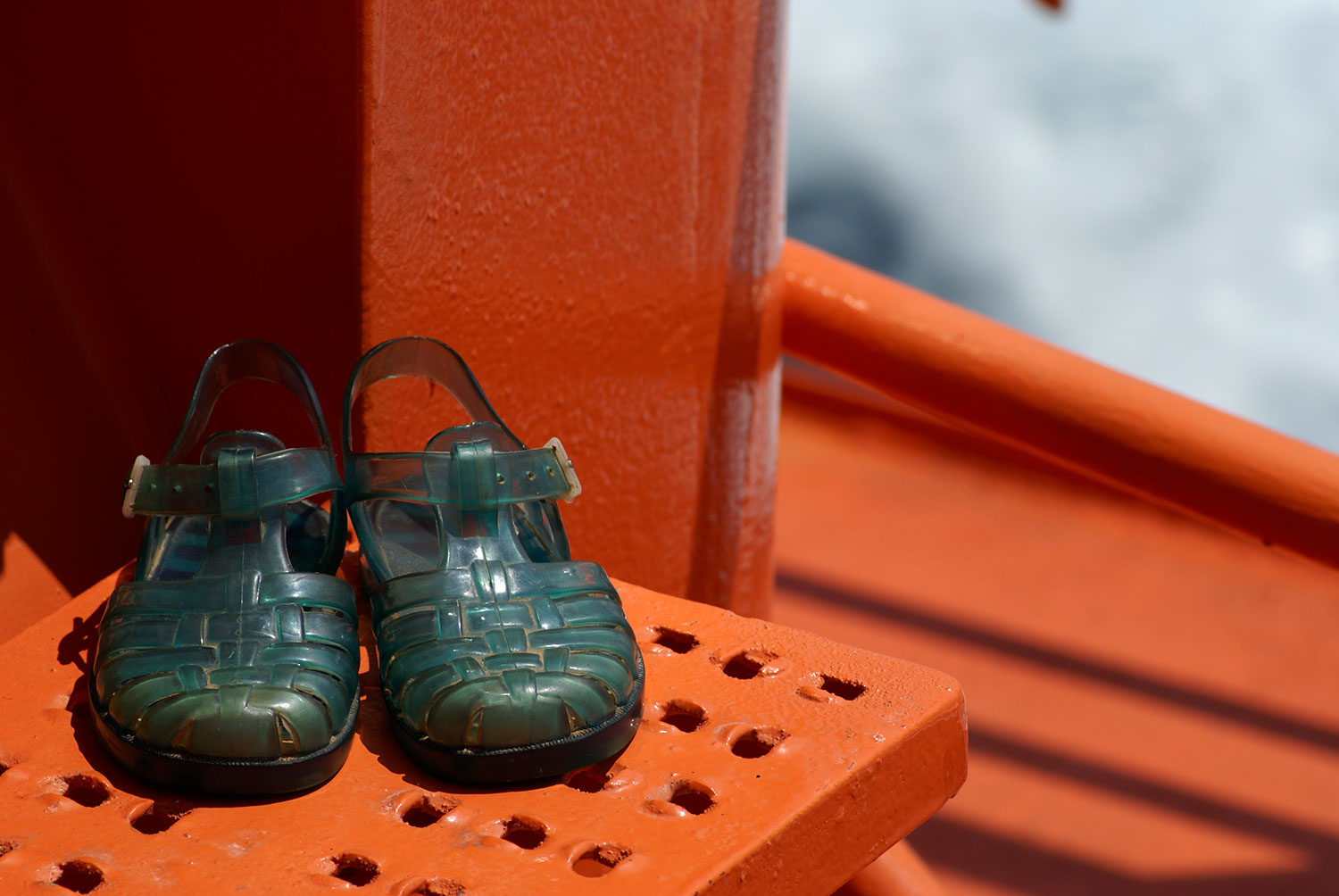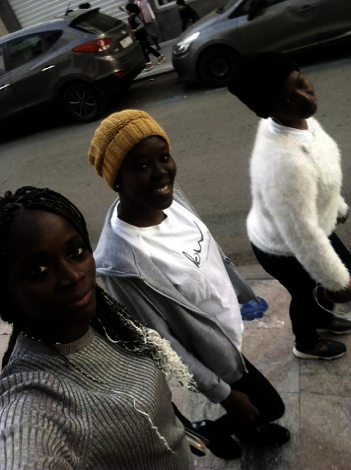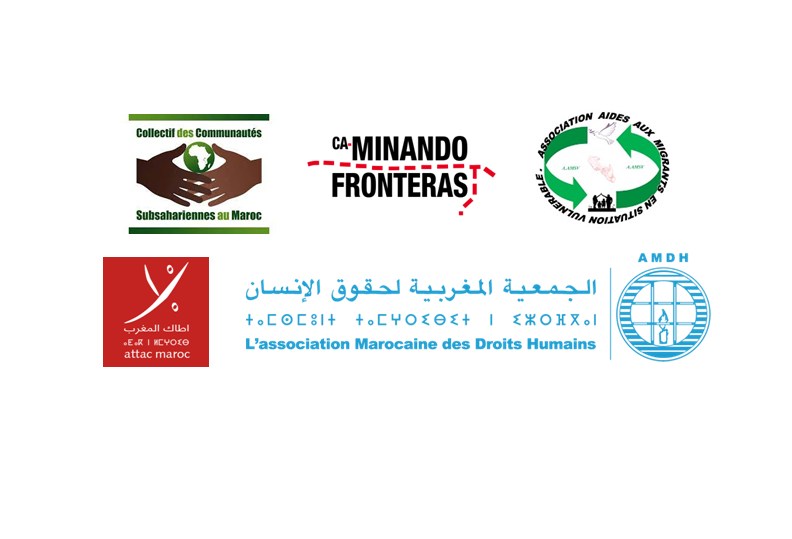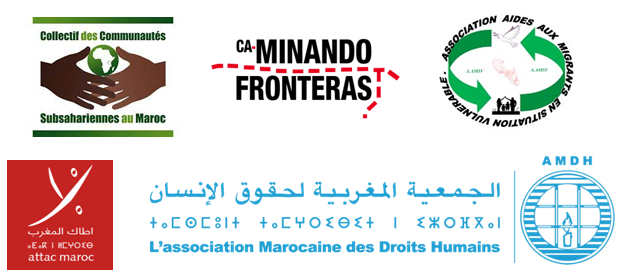At this very moment, from Central America to the Mediterranean, tens, hundreds, thousands of people are trying to cross a border. They travel with their children on their backs, their drive for life and their determination to find new reasons to be hopeful.
Meanwhile, the deadly apparatus of necrocapitalism rolls into action to capture, enslave and transform them into merchandise.
This report by Ca-minando Fronteras not only unveils the humanitarian crisis and human rights violations occurring at the western Euro-African border and many other borders around the world, it also demonstrates how the dynamics of death and despoliation underpinning the increasingly voracious form of capitalism we are currently experiencing are distilled and entrenched in the imposition, control and expansion of borders.
The collusion between European governments and corporate power (both legal and illegal) to supplement the millions of euros made in profit from controlling migrant people is also apparent at the borders. As the report shows, an entire industry based on violence and death profits from monitoring, arresting, imprisoning, deporting, trafficking, enslaving and even rescuing and supporting those who attempt to cross borders.
At the borders, it becomes clear that states have abandoned their duty to guarantee human rights. Here, the law is merely a tool to legitimise racism and patriarchal structures and colonial power continues to operate, dividing humankind into worthy people and bodies that may be exploited, discarded, violated and killed to protect the interests of capital.
Borders strip migrant people of their rights and leave them helpless so that they can be exploited by capital at no cost. When profit is the priority and controlling and violating migrant people’s lives is an endless source of wealth and power, human rights are little more than a superfluity or obstacle, regardless of all the treaties signed and agreements reached at the United Nations.
At the borders, neoliberalism continues apace, externalising, privatising and cutting funds for public services. What happens here spreads across every land, government and institution. The rights stripped from migrant people are the same as those gradually removed from the rest of the population. There is no limit to the greed of necrocapitalism, nor does it respect any pact to guarantee a minimum level of social justice.
At the borders, the weakening of democracy and the descent into authoritarianism are all too apparent. This report by Ca-minando Fronteras clearly explains how the power of migrant people to speak out and defend themselves from injustice is disregarded and negated, showing how border policy is based on restricting, criminalising, threatening and attacking the people and organisations who seek to defend the rights of migrant communities: “…criminalisation has grown rapidly in recent years as the economic interests of the companies investing in border control have increased… The normalisation of the idea that border control takes precedence over the human rights of certain groups of people has also served to justify persecution and violence against people who defend human rights…”.
The use of the legal system to make false accusations against activists to restrict their right to defend human rights is increasingly common among governments that boast of a solid democracy and rule of law. As documented in different parts of the world, the securitisation that is imposed at the borders with violence and impunity has been used to repress social protest and avoid complaints of human rights violations.
These conditions are challenged by the resistance and determination of migrant people and communities and the organisations and associations that support them. To migrate as a person who is poor, female, black, trans or indigenous, or without papers and the authorisation and acceptance of those in power, is to violate the status quo and defy necrocapitalism. The inalienable right to free movement, the determination to seek better living conditions and the struggle for freedom are stronger than any violent border.
This report reveals the wisdom of the bodies that resist and bear the seeds of hope, of those that know to flee violence to protect themselves and of those that work together to build invisible shields to preserve life and dignity. These pages contain a detailed, devastating analysis of the situation by the migrant people who are so often silenced, stigmatised, infantilised and portrayed as victims, as well as of the migration policies, institutional racism and colonial dynamics that affect them. The voices of migrant women in particular are showcased, as they explain their strategies of resistance and the ways in which violence is exerted over their bodies and lives as a powerful mechanism of social control and fear.
“Migrant people and their families are the bedrock of resistance to necropower”: they are the legitimate spokespeople for their own experiences and are aware of the solutions and approaches required to tackle multiple forms of violence. They are human rights defenders who speak out on behalf of those who have gone missing or died at sea, constituting a global movement that has exposed the impunity, collusion and inhumanity of governments and criminal organisations in many parts of the world. Overcoming indescribable pain, with the full weight of the system against them, they seek to obtain justice, dignify memory and demand narratives that expose the perpetrators instead of the victims.
Working alongside them are people, platforms, groups and organisations that support them with respect, recognition and mutual care. They have built networks of life to counter the prevailing culture of individualism and xenophobia: to warn of boats in distress, to support families whose loved ones are dead or missing, to humanise migrant bodies and lives and to condemn a system that is not only destroying lives but is also undermining the more noble, generous values developed over the course of human history.
This report is a living testimony of the importance of the work of Ca-minando Fronteras and the migrant communities that it supports in saving lives and calling for the system to be radically overhauled. Their work recognises migrant people as political subjects and centres their voices, wisdom and vision, lending far greater meaning to the quest to prioritise care and the protection of life above all else.
Those of us who have been migrants and our loved ones who have migrated are alive today thanks to the care we received during our experiences of transit and mobility. May we never forget this and may the collective experience imprinted on the memory of our ancestors serve as a source of strength to help us bring an end to the deadly policies that seek to deprive us of hope.
Marusia López, member of Just Associates (JASS) and the Iniciativa Mesoamericana para Defensoras de Derechos Humanos.
